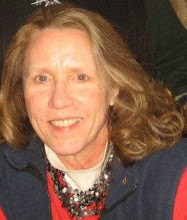
This notice is drawn from the
John Marshall Law School site. (with a hat tip to Brigette Gaucher, Publications Coordinator
, The John Marshall Law School).
This competition solicits student articles responsive to the challenge to act "regionally, comprehensively, and boldly" and to address how law should (or has) advanced the implementation of the Burnham plan in areas including
architecture, urban planning, land use policy, housing policy, water rights, parkland preservation, and historical preservation. The winning entry will be awarded a prize of $3,000
. The competition will award a second prize of $2,000 and a third prize of $1,000. Winners will be invited to attend Burnham Centennial events at the law school.
Standards. Entries will be evaluated based on: (1) originality, (2) contribution to the understanding or development of the fields of planning and law, (3) quality of scholarship, and (4) quality and organization of writing.
Directions for Entries. Entries shall not exceed forty-five (45) pages including footnotes with a 1" margin on all sides. Text should be double-spaced in twelve point font. Manuscripts should follow generally accepted guidelines for academic writing.
Submission of Entries. To enter the competition, send five (5) copies of your entry, postmarked no later than September 1, 2009, to Professor Susan Marie Connor, The John Marshall Law School, 315 South Plymouth Court, Chicago, IL 60604. Please send an additional copy via email to 7Connor@jmls.edu.
The competition honors the Burnham Plan 100, which was born in 1909:
In 1909, Daniel Burnham and Edward Bennett collaborated with the Commercial Club of Chicago and others to create a new plan for the greater Chicago region. One hundred years later, now, the challenges of increased congestion and pollution, loss of public lands, and growing disparity of wealth, give added urgency to Burnham's call to act regionally, comprehensively, and boldly.
Just as Chicago's physical architecture defines the space in which we live, law provides a hidden "architecture" defining our social and economic space. Poor or outdated legal structures can restrict human growth, prosperity, and satisfaction, but well-designed ones can promote social, economic, and personal well-being.
**
Image linked from Wikipedia Article on Daniel Burnham and provides an illustration of the Burnham Chicago Plan (1909)








